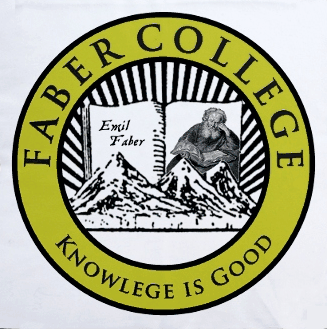Animal House: Still Funny at Age 40?

In the fall of 1977, along with the incoming class, the University of Oregon welcomed another group of fresh faces.
More than 100 Hollywood professionals—actors and gaffers, makeup artists, camera crews—arrived on campus to shoot a low-budget movie. The director was unestablished and the cast consisted mostly of young unknowns. Universal Studios allotted just $2.8 million for the picture and they wanted it made quickly.
The studio’s expectations for National Lampoon’s Animal House may have been modest, but for UO students, faculty, and staff, spending the fall term elbow-to-elbow with a Hollywood production proved to be a major event.
“At that time, we had no idea what the storyline of the movie was going to be about,” recalls David Boone, an Oregon native who was beginning his sophomore year. “All we had heard was that it was going to be set in the early 1960s. This was ’77 and we all had relatively long hair. Everybody suddenly went out and got haircuts or they tried to dress up in a period style, because people wanted to be cast in the movie. Almost overnight, the whole campus took on this retro theme.”
* * *
The entire shoot lasted for 32 hectic days and then, as suddenly as they’d arrived, the actors and filmmakers departed for Los Angeles and New York.* * *
It was more than a hit—the rude and raunchy, low-budget comedy became a cultural event. Critics were lukewarm, but audiences ate it up. After its opening on July 28, 1978, Animal House would earn more than $140 million at the box office, becoming one of the most profitable films of all time.
* * *
While Animal House is having a birthday, the big four-oh can be a mixed bag. And comedy has a reputation for aging less gracefully than other genres.
“The problem is the film is bad, really bad,” says Aronson. “It might be fondly remembered if you haven’t watched it in 30 years, but Animal House is awful; wildly misogynist, homophobic, and racist.”
* * *
Its ethos was antiauthoritarian, its humor a well-deserved raspberry aimed at the smug privilege of respectable, middle-class values. The screenwriters conceived of the film as an escapist glimpse back to their own, carefree college days—in their estimation, the last era of “American innocence” before Vietnam and the political turmoil of the ’60s.
But this is a perspective of yesteryear, * * *
“Ten years ago they were more aware of it,” Roberts reflects. “But when we ask today’s students about Animal House, their response most often is, ‘What’s that?’ Their references for college life are all newer movies and shows.”
* * *
After a recent screening in Kalapuya Ilihi residence hall, Demars and other students in the audience noted that the movie’s point-of-view always treats nonwhite people as “The Other.” They were turned off by protagonists who use terms like “homo” and “retard” as putdowns. They felt that too many of the jokes objectified women, glorified harmful behavior, or betrayed implicitly racist attitudes.
“The writers are so creative, they should be able to come up with something that will make me laugh without implying that a girl is going to be molested,” says history major Isa Ramos. “I would hope to think that we as a society have decided that certain things in that film are unacceptable.”
The feedback wasn’t all negative. Many of the jokes that hinge on pure slapstick or broad physical comedy earned chuckles from the audience. After the credits rolled, there was praise for Belushi’s performance, and they confirmed that the poster of his portrait in the COLLEGE sweatshirt still can be found hanging on dorm room walls to this day. Of course, they also enjoyed spotting campus scenery throughout the footage
However, this student audience’s final review of Animal House was tepid at best. They thought the plot was overstuffed and unstructured, and too much of the dialogue hinged on insults. They were critical of the gratuitous nudity.
More than one viewer described the film as “old fashioned”—an ominous sign with regards to any media artifact’s prospects for longevity. More ominous still, “overrated.” And finally, the judgment that is most gravely portentous for anything intended to be timeless comedy: “Not all that funny.”
* * *
Context. It’s always critical. A number of the film’s principal creators are now deceased and can provide us with none. In its own defense, the movie offers only a classroom lecture positing that Satan is the most interesting character in Paradise Lost, plus the Delta House motto, Ars Gratia Artis—“Art for art’s sake.”
And so, like a more-dedicated student than anybody in the movie, you consider the various contexts that art and literature and history afford, and come to your informed conclusions.
Professor Aronson’s verdict: “Probably it’s best to forget Animal House, although it’s really hard not to love Otis Day and the Knights.”




